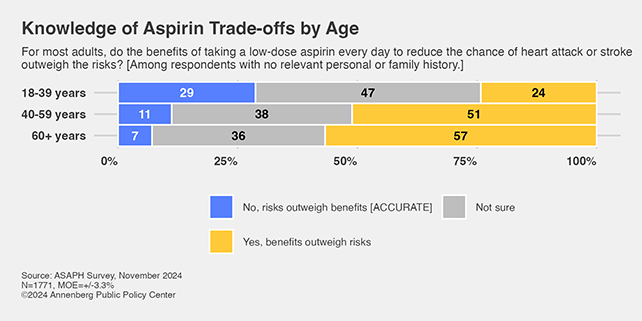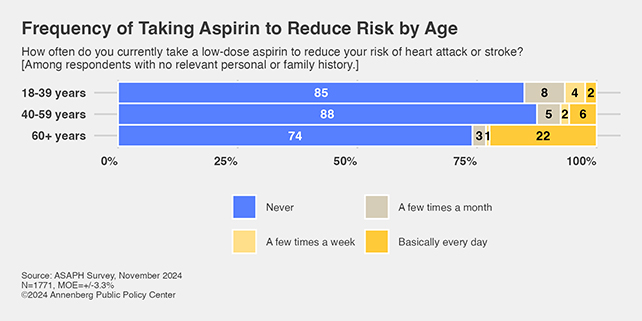A new report shows that almost half of the adults in the US aren't aware of the latest health guidelines around aspirin, which claim the risks of a daily low-dose aspirin outweigh the benefits.
This comes from a survey of 1,771 people by the Annenberg Public Policy Center in Pennsylvania, on behalf of independent market research company SSRS. Respondents were quizzed on aspirin use and knowledge in November 2024.
In the past, aspirin's blood-thinning properties had led doctors to recommend a small daily dose of around 80 milligrams be taken by healthy, elderly patients to reduce their risk of heart attack or stroke.

That changed in 2019, when the American College of Cardiology and the American Heart Association (AHA) brought out new guidelines. The updated advice was that the risk of gastrointestinal bleeding from daily aspirin doses wasn't worth the reduced risk associated with cardiovascular disease and related issues.
"The most important way to prevent atherosclerotic vascular disease, heart failure, and atrial fibrillation is to promote a healthy lifestyle throughout life," state the guidelines.
"Aspirin should be used infrequently in the routine primary prevention of atherosclerotic cardiovascular disease because of lack of net benefit."
More than five years on, a number of people have yet to receive the message. As well as the 48 percent of respondents who still thought the effects of a daily dose of aspirin did more good than harm, another 39 percent weren't sure.
People in the youngest bracket (aged 18 to 39) were the most likely to know a daily aspirin is generally not recommended for most individuals. Those in the oldest bracket (aged over 60) were least likely to know – only 7 percent of this age group knew the drawbacks to aspirin outweigh the benefits, perhaps because for much of their lives, they've been told the opposite.

Studies have shown severe internal bleeding can be a consequence of repeatedly popping aspirin, interfering with process that protect the stomach's lining and potentially making inflammation and damage more likely.
However, the medical advice varies depending on your health history. For those who are known to be at an increased risk of heart problems, or those who have had a heart attack or stroke in the past, aspirin might be considered worth the risks in those cases.
The best advice you can follow is to consult your doctor before making any kind of change in your medication and ask them to check the latest guidelines on everything from aspirin to diet (which changes more often than you might think).
"Habits backed by conventional wisdom and the past advice of health care providers are hard to break," says Kathleen Hall Jamieson, director of the Annenberg Public Policy Center and this survey.
"Knowing whether taking a low-dose aspirin daily is advisable or not for you is vital health information."
